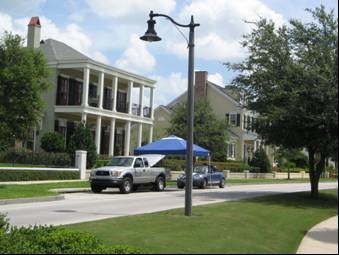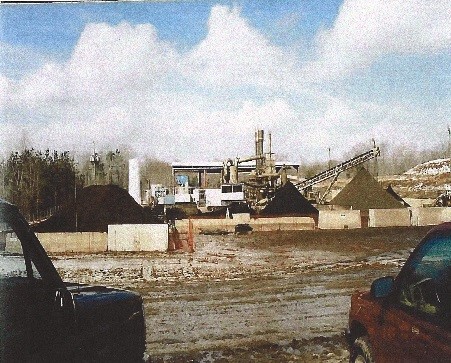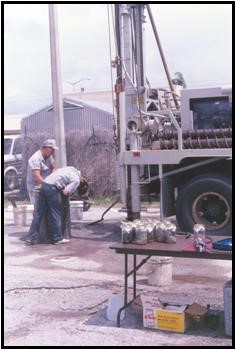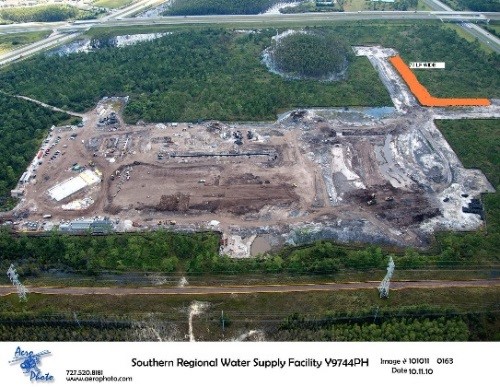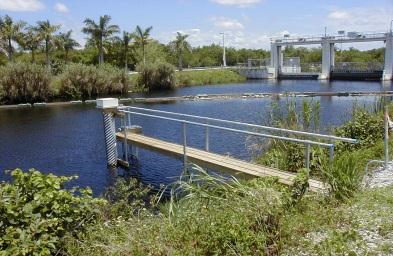Hydrogeologic and Engineering Consultant – City of Titusville, Florida
Since 1989 BFA staff has provided professional hydrogeologic and engineering services for several projects related to water supply planning, permitting and well field rehabilitation under contract with the City of Titusville. These services continued after the establishment of BFA in 1994. The services include water resources/water supply, water production, wastewater treatment, water distribution, sewer collection system, and force main, lift and pump station design.
Future Water Development and Implementation Plan – Because of the limited sustainable yield of the Area II & III Well Fields and the anticipated growth, the City recognized alternative supply sources would eventually need to be developed. BFA evaluated several supplemental water supply options to meet the projected water needs of the City through 2020. Three technical memorandums and a final report were prepared that recommend future water supply options for the near and long term. Evaluations included existing potable and reclaimed water facilities, hydrogeologic and saline water conditions, historical and projected water use and several alternative water sources. Fresh groundwater from northern Brevard County (Area IV Well Field) was recommended as the primary supplemental water supply option, based on technical, economic and environmental feasibility.
Hydrogeologic Investigation for Siting a New Well Field in Northwest Brevard County – Siting a new well field area involves many considerations, however the water quality and potential yield are the primary factors. BFA designed and implemented an extensive drilling and testing program in northern Brevard County to determine the water quality profile, hydraulic characteristics, aquifer thickness and potential for well field development within the Upper Floridan aquifer. BFA provided well construction management, field observation and testing services for both surficial and Floridan aquifer exploratory type wells. Analyses generally included aquifer performance tests, geophysical logging, packer testing, water quality testing and groundwater flow modeling. These data were compiled into a detailed report that was used as a primary supporting document for well field permitting.
Consumptive Use Permitting of Area IV Well Field – As recommended by BFA in the previous studies, the City is pursuing development of a 2.75 mgd well field in northwestern Brevard County as a supplemental long-term supply source. Many utilities throughout Florida, that have limited local sources, eventually seek well fields outside of their service areas. BFA prepared a Consumptive Use Permit application that involved developing groundwater flow and saline water upconing models a well field operation plan, artificial recharge plan and wetlands and saline monitoring plans. Several supporting documents were prepared throughout the rigorous permitting process. The SJRWMD is in favor of permitting this facility, however, the permit is being challenged by an adjacent property owner through an administrative hearing process. BFA has provided expert witness testimony and developed numerous trial exhibits for this hearing process.
Area II Well Field Refurbishment Program – The Area II Well Field has been a reliable and inexpensive supply source for the City since the 1960’s. However by the 1990’s many wells needed replacement due to capacity reduction from biofouling and encrustation or saline water upconing. BFA has worked closely with City staff to replace wells or identify new well locations to enhance well field capacity. The area surrounding the Parkland Wetland System was determined to be the thickest area of the fresh water lens because of its recharge effect. During 1995 & 2001, BFA prepared contract documents and design specifications for the replacement, rehabilitation and abandonment of 20 surficial aquifer screened supply wells in Area II Well Field. BFA also performed bidding, well construction management, field observation and testing services.
Area II & III Well Field Management Plan – The City’s existing well fields are prone to encroachment of brackish water and well screen bio-fouling and/or encrustation has been a chronic problem acting to decrease well efficiencies. In order to optimize water production and quality, BFA evaluated the City’s historical water quality and well yield records and made recommendations for a well treatment/rehabilitation program, an enhanced monitoring program, construction of eight new/replacement wells, an operational schedule and artificial recharge projects. Newer well screen products/designs and drilling methods have been developed and will be used for construction of these wells.
Area III Well Field Artificial Recharge Feasibility Assessment – The City has an interest in utilizing artificial recharge to potentially enhance well field production and reliability in addition to restoration of groundwater levels and quality. It may be feasible to capture water using horizontal wells installed along canals and distribute water into infiltration basins, exfiltration trenches, ponds or wetlands at the Area III Well Field. BFA conducted a desktop feasibility assessment and made recommendations to further investigate site specific soil conditions and pilot testing a horizontal well system. BFA prepared a report summarizing the existing well field conditions, locations of potential recharge sites and sources of recharge water, permitting requirements, conceptual designs, estimated costs and flooding potential.
Phase I Drilling Program at Area II and III Well Fields – The City recognizes that fastest and most inexpensive way to increase yields is to maintain and enhance their existing infrastructure or local supply sources. BFA is currently working with the City to identify the best locations for new supply wells and a well rehabilitation program to remove encrustation and biofouling from screens through chemical and mechanical methods. Soil borings and monitor wells have recently been completed to identify the best locations for new supply wells. The feasibility of the above Area II and III Well Field projects depends greatly on the surficial aquifer soil texture/permeability and groundwater quality conditions. Results of the Phase I program will be used for selection of locations and design of 8 new supply wells.
Assistance with City Well Field Ordinance – The City recognizes the limitations of local water resources and existing well fields and has adopted several protective ordinances to ensure their preservation. BFA has occasionally worked with the City and developers in evaluating
